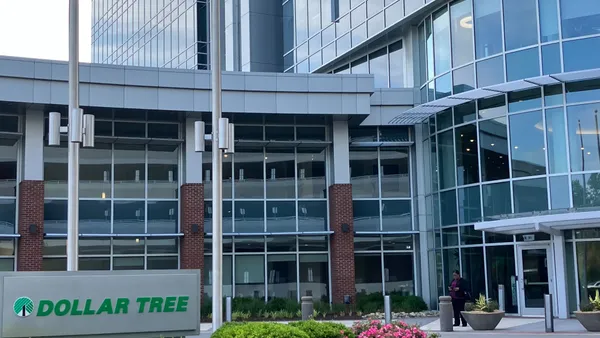Dive Brief:
- FedEx Logistics is adding a Foreign Trade Zone location in El Paso, Texas, the logistics provider announced Thursday. It also has locations in Los Angeles, New York, Dallas and Chicago.
- The City of El Paso's infrastructure and proximity to the Mexican border allows for the efficient movement of goods, FedEx said in its release, adding that its FTZ network will complement existing freight forwarding services. The automotive and electronics sectors are especially common users of FTZs, a FedEx spokesperson said in an email.
- "This new FTZ is a secure, controlled area that is treated as if it is located outside the U.S., which enables customers to benefit from duty and tax incentives and a portfolio of logistics solutions," FedEx Logistics CEO Udo Lange said in a LinkedIn post.
Dive Insight:
FedEx joins DHL and UPS among the large logistics companies expanding FTZ networks over the last year. UPS converted four U.S. air freight gateways into FTZs last year. And DHL added an El Paso, Texas, FTZ earlier this summer.
El Paso's location provides access to manufacturing in the Mexican State of Chihuahua, David Goldberg, CEO of DHL Global Forwarding U.S., told Supply Chain Dive in July.
FTZs are areas physically within the U.S. that are treated as though they're outside of the country for customs purposes. The setup allows companies to forgo payments on certain duties.
Interest in these locations has grown as a result of the trade war, which increased tariffs by as much as 25% on some items imported from China. Shippers have also become more interested in FTZs during the pandemic as a way to cut costs, said Sean P. Gazitúa, the president and CEO of Miami-based WDTC, a logistics company, FTZ operator and consultant.
"It's been a busy year," Gazitúa said. "A lot of people have been trying to cut costs or hold on to their cash as long as possible."
A spokesperson for FedEx confirmed that the trade war and the pandemic have increased interest in FTZs "as more companies try to find ways to stabilize their supply chains and minimize the effect of new trade tariffs." Getting set up as a user takes "a matter of weeks," the spokesperson said.

One of Gazitúa's clients was a manufacturer who wanted to get set up as an FTZ operator. This allows the manufacturer to import the raw material while deferring the duties until the item is fully manufactured, which then changes the tariff code to pay duties on.
A more typical setup is a company that manufacturers abroad and uses FTZs for inventory positioning before distributing across the U.S., he said. A company can either set itself up as an FTZ or work through a logistics company like FedEx that already has an FTZ and send its inventory through the existing location.
"You pay the duty once you have a buyer, so that's cash savings right there just by deferring the duties," Gazitúa said.
The deferral of duties is especially attractive during the pandemic as consumer demand for some items has dropped. FTZs allow shippers to hold onto excess inventory without paying duties until demand returns, Leigh Ryan, the VP of World Trade Center Savannah, said in a recent blog post.
"FTZ’s are playing a crucial role right now in alleviating the issue of making duty payments when merchandise is at a standstill," Ryan wrote. "Some zones have already announced the availability of activated FTZ space to store excess merchandise during the current crisis and alleviate companies’ cash-flow challenges by deferring the payment of duties and other fees."
An FTZ also allows a company to cut down on paperwork. Importing goods in a traditional manner requires the shipper to file one entry per shipment with U.S. Customs, but as an FTZ, a company is only required to submit one summarized entry on a weekly basis, Gazitúa said.
Texas has more import and export activity than any other state heading through its FTZs, according to the most recent report from the U.S. Commerce Department’s Foreign Trade Zones Board.
Large users of the zones include Exxon, GE, Honeywell, Marathon Petroleum, Mercedes-Benz and Tesla. The report from the Commerce Department said 3,300 companies used FTZs in 2018. As of 2018 there were 69 companies operating FTZs in El Paso, Texas.















